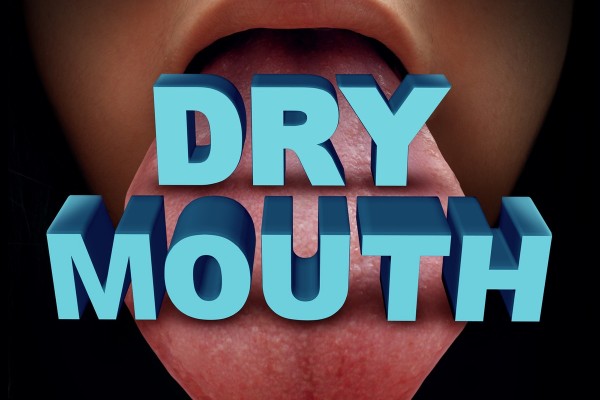Dry mouth is a condition characterized by a lack of saliva in the mouth. People bothered by dry mouth simply don’t have enough saliva to keep their mouths moist. The medical community refer to this condition as xerostomia, but it is more commonly recognized by the public as cottonmouth. Although this is far from being a life-threatening medical condition, xerostomia can be very uncomfortable, and it can severely inhibit swallowing.
It’s much more common among elderly people, and it is often triggered by using certain medications. People who have dry mouth often experience bad breath and cracked lips along with the dryness in their mouths. In order to avoid worsening the condition, you should avoid sugary drinks and any kind of spicy foods. Below you’ll find just about everything you need to know about the dry mouth condition, and how you can handle it.
Causes of Xerostomia
There are a number of possible causes of dry mouth, beginning with the use of such medications as decongestants, antihistamines, muscle relaxants, incontinence drugs, and several types of antidepressants. Dry mouth is not a natural development of older age, but it is a condition more commonly found in the elderly, simply because they take more medications than do younger people. People who are undergoing cancer treatment often develop dry mouth because radiation therapy to the area of the neck or head can cause damage to the salivary glands.
Any kind of injury or surgery to the head or neck area can also cause damage to the salivary glands and result in xerostomia. Temporary dry mouth can be triggered by a lack of adequate hydration, which is common when exercising in very warm conditions. Smoking cigarettes and chewing tobacco also commonly triggers dry mouth, and people who smoke a great deal will often experience dry mouth frequently.
Symptoms of Xerostomia
You might think there are just a couple of symptoms associated with dry mouth, but in fact, there is a whole catalog of symptoms which might appear. Cracked or splitting lips is one common symptom, and so are taste disorders or fungal infections, such as thrush. You might experience a painful tongue or an increased thirst, especially at night time. Your tongue may become inflamed or develop ulcers on it, and you may be subject to more frequent gum disease, as well as to decay and additional plaque buildup.
Most people who have dry mouth have difficulty speaking, swallowing, and chewing, especially foods which are dry and crumbly like cereals or crackers. You might also experience difficulties wearing dentures, and you could even develop denture sores. People have been known to incur salivary gland infections with dry mouth, as well as sore throats and sticky saliva. All of these symptoms are possible for a person who is undergoing xerostomia, but fortunately all of these symptoms can be treated.
Treatments for Xerostomia
Depending on the type of symptoms which appear during dry mouth, there’s a wide range of possible treatments which you might undergo. In general, it’s a good idea to sip on sugar-free, non-carbonated fluids, or to chew gum which contains xylitol. You should avoid using mouthwashes which contain alcohol, and instead use one which has carboxymethyl cellulose, a saliva substitute.
Avoid wearing your dentures during sleep if that is your normal routine, and you should also try to avoid breathing through the mouth because it dries out the mouth much more quickly than breathing through the nose. It may be helpful to install a humidifier in your bedroom, and run it at night, so as to reduce any symptoms which might develop during sleep. Whenever possible, munch on foods like celery or carrots, because they supply natural moisture to the mouth.
Things to avoid when you have xerostomia are dry foods, spicy foods, and acidic drinks or foods, sugary drinks, astringents, or drinks which are extremely hot or cold. Alcohol consumption should be avoided altogether if possible, and kept to a minimum when engaged in. Caffeine should also be consumed only in moderation, which means no more than about 2 cups per day.
When it is suspected that dry mouth has been triggered by a specific medication, your doctor should be consulted, and another prescription should replace the original one. In some cases, medication can be prescribed which will increase the saliva production in your mouth, for example cevimeline or pilocarpine. It’s also important to pay close attention to your dental hygiene when you have persistent dry mouth, which means conscientious brushing of the teeth and flossing.
Tell Us About Your Dry Mouth Symptoms
If you’ve been experiencing dry mouth that you feel is more than a temporary condition, tell us what kind of symptoms you’ve noticed daily. At Good Samaritan Dental Implant Institute, we are very familiar with xerostomia and its treatment, and we’ll be glad to treat your symptoms, and to help restore the normal saliva level in your mouth.

